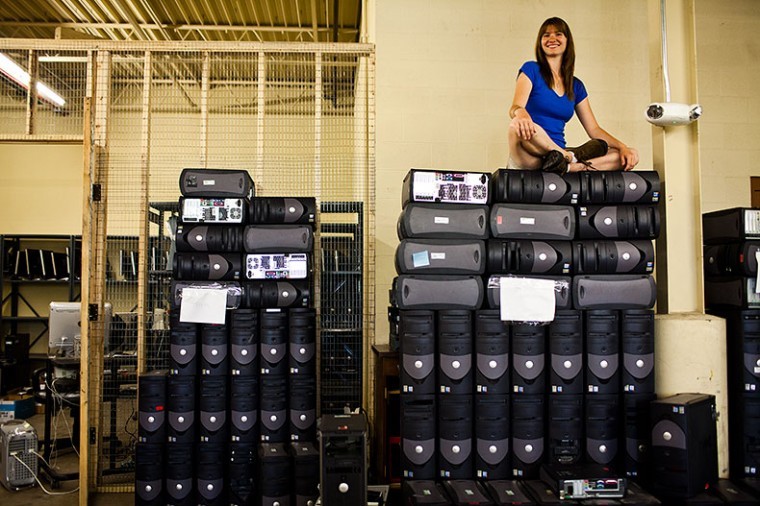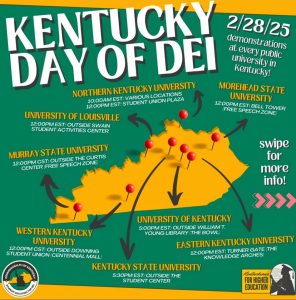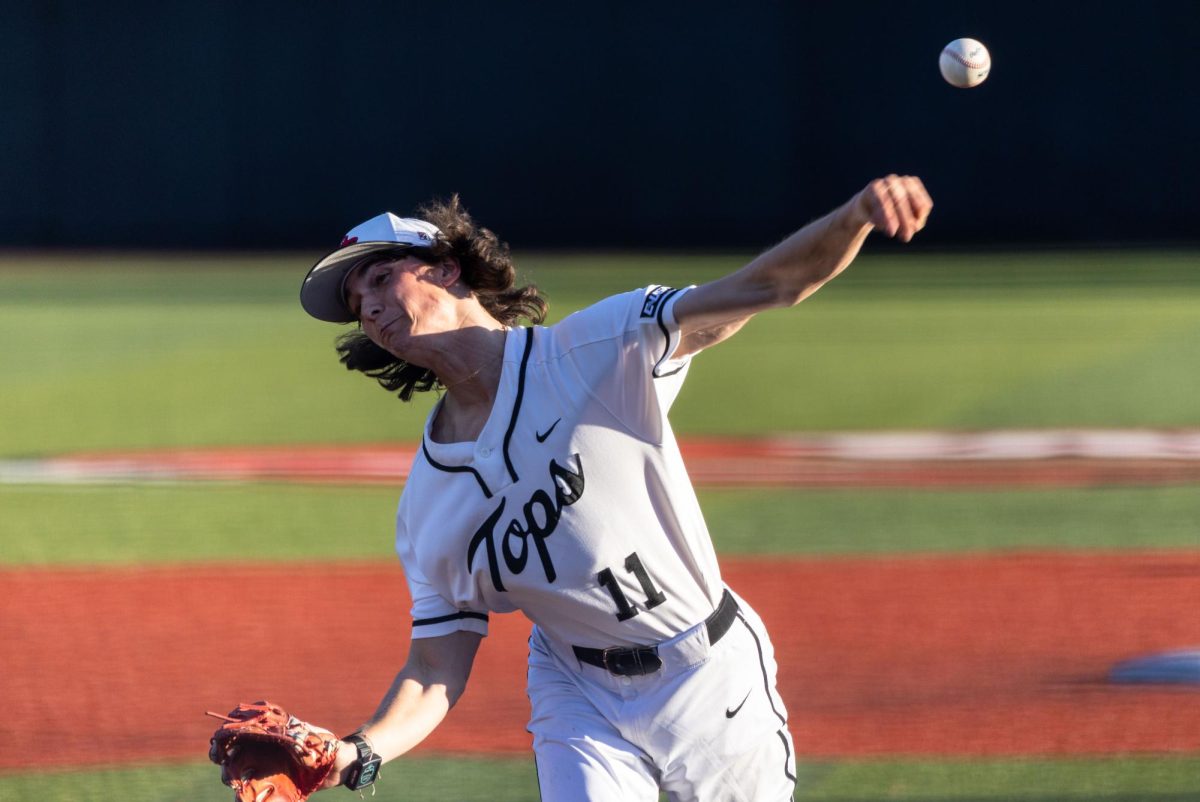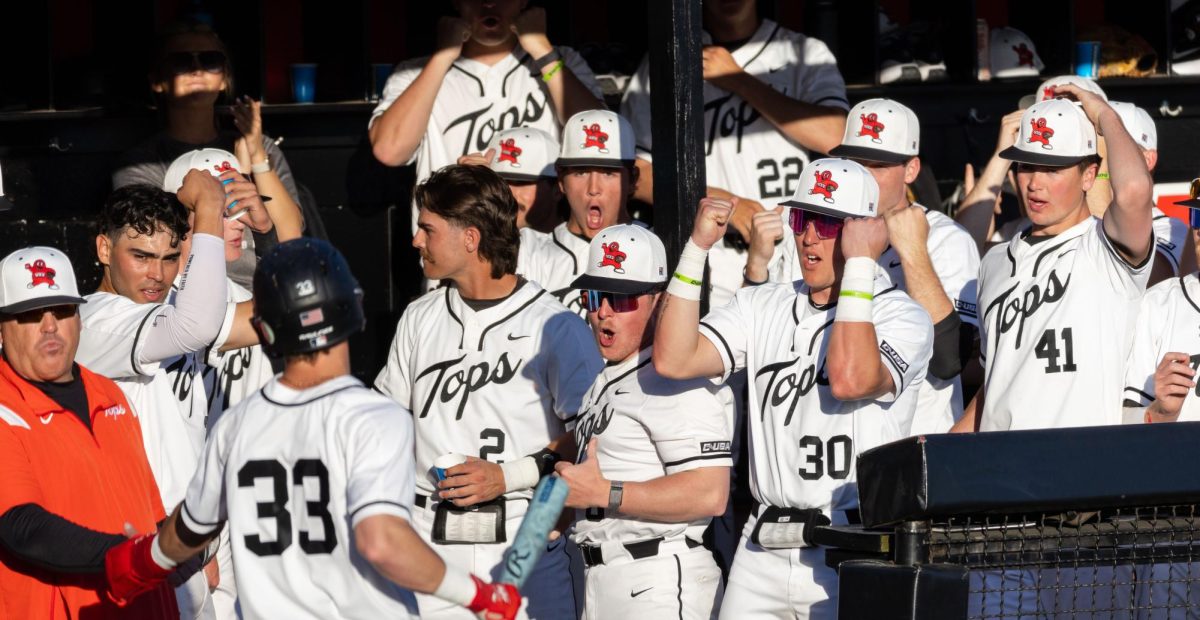New WKU surplus coordinator brings creativity to the job
September 6, 2011
To the normal eye, an outdated satellite may just be a piece of oversized junk. But in the land of Recycling and Surplus, that satellite becomes a pond filled with quacking ducks.
Nothing is too old or too broken for WKU’s new Recycling and Surplus Coordinator Sara Ferguson.
Ferguson serves two roles as coordinator. First, she takes the outdated and unwanted “stuff” around campus and gives it a new home. Two weeks ago, she received a satellite dish purchased 11 years ago by the broadcasting department.
“They never picked it up, so it’s a huge satellite dish,” she said. “Nobody wants it, and now it’s obsolete, so we’re going to turn it into a duck pond at the student farm.”
Sustainability Coordinator Christian Ryan-Downing said Ferguson’s excitement and creativity make her perfect for her new job.
“Sara just has an ability to see the value in things other people don’t,” Ryan-Downing said. “She’s perfect for getting things surplused and reused.”
Ferguson said education is her biggest obstacle with surplus items.
“We have to make sure we’re not just tossing it in the dumpster,” she said. “It takes creativity, but it also takes more education. We want people on campus to realize ‘don’t buy stuff if you don’t need it, but also reuse stuff.’”
Cathleen Webb, the chemistry department head, said she took inventory of her department last year and worked closely with the surplus department to give away all the excess items.
This year, she furnished three offices in her department with Ferguson’s help, saving about $3,000 in desks, file cabinets and furniture.
“When we have items that are just too old, we have no authority to just dispose of it,” Webb said. “We surplus them. This year we needed those items, but there’s no way to communicate that.
“It would be difficult to exchange directly between departments because when we needed those desks, that would require communicating between three different departments. Having a centralized way to move items makes it so much easier.”
But supervising surplus isn’t the end of Ferguson’s work. She also leads the recycling program on campus.
Ferguson’s latest recycling effort to divert cardboard boxes from dumpsters during MASTER Plan move-in produced about 6.9 tons of recycled cardboard that might have otherwise been wasted.
Ryan-Downing said the success of the Cardboard Collection Drive shows how passionate Ferguson is about her job.
“Her heart’s in it and she’s really efficient and really creative, and she has a lot of energy,” she said. “It’s refreshing to work with someone that can get excited about recycling and surplus.”
Ultimately, Ferguson said the forward thinking of students, faculty and staff will determine recycling and surplus’ success.
“Don’t buy stuff until you know for sure we don’t already have something in surplus like it that you can use,” she said. “That’s how we end up with a satellite dish that is huge that is going to become a duck pond.”


















